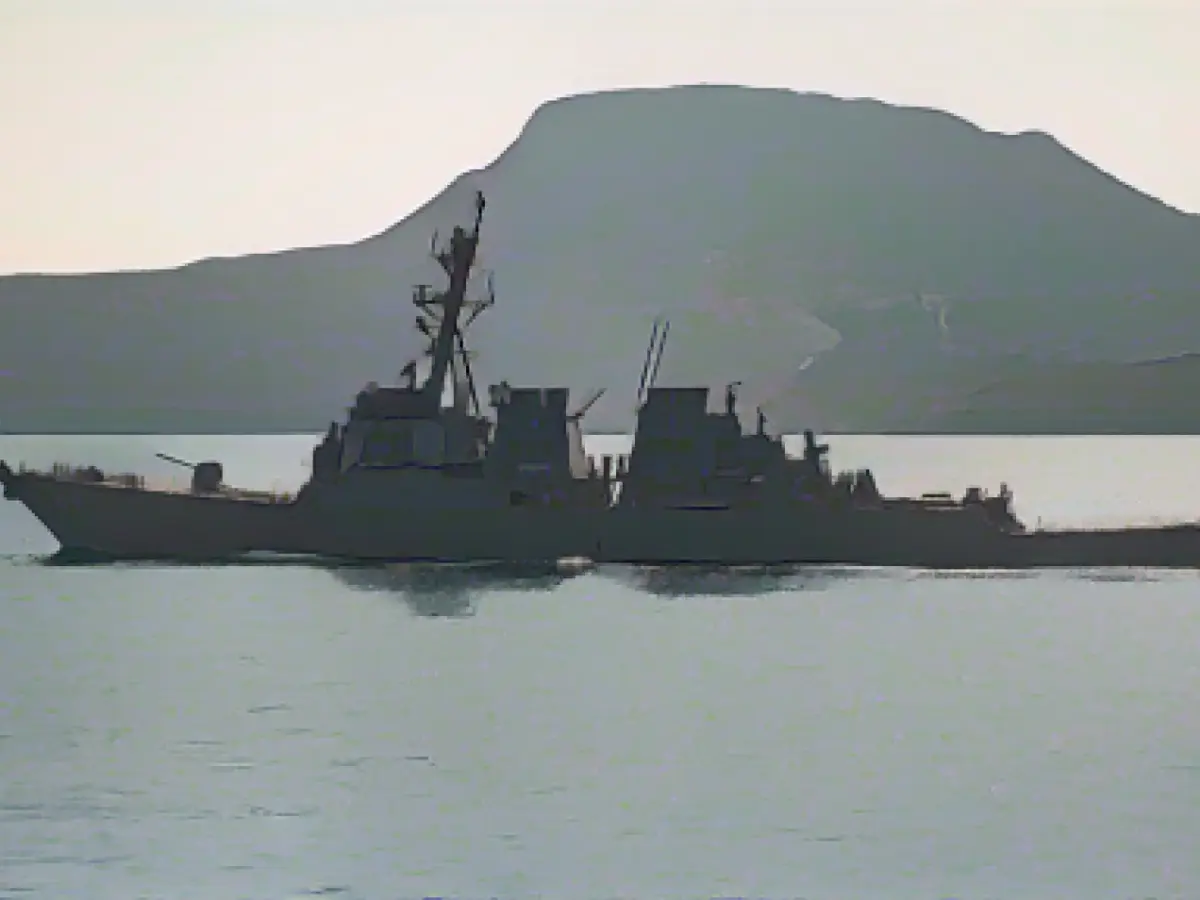Titled: Houthis Step Up Red Sea Attacks on Merchant Ships, Riling Global Trade and Security
In the Red Sea, a troubling trend is emerging as the Iran-backed Houthi rebels intensify their attacks on merchant ships. The latest wave of assaults brought three freighters under siege, terrorizing international crews and posing a monumental threat to maritime security and global trade.
Over the weekend, the US Navy destroyer USS Carney joined forces to protect the freighters in distress. Though exact details remain unclear, it is yet undecided whether the vessel itself was the intended target during one of the drone attacks. The Houthis openly admitted responsibility for attacks on two undefined ships and once more hinted at further hostile acts against Israeli marine traffic.
Notably, one of the most crucial shipping lanes, connecting the Mediterranean and the Red Sea, runs perilously close to Yemen's coastline. This corridor is the shortest sea route connecting Asia and Europe, facilitating around ten percent of world trade.
Initially sparked by Israel's conflict against the Islamist Hamas in the Gaza Strip, the Houthi rebels in Yemen threatened to launch attacks on "all ships" harboring connections to Israel. These open hostilities were directed towards vessels bearing the Israeli flag, those owned or managed by Israeli companies. A repeat of this threat shortly followed, with the rebels claiming responsibility for two strikes involving an Israeli-linked cargo ship and a drone.
The target ships, the "Unity Explorer" and "Number 9", both sustaining damage, were not in fact connected to the state of Israel. The Unity Explorer, belonging to Bahamian interests and owned by the British, absorbed two near misses. A missile grazed the vessel near its hull, while another one struck further away, causing slight damage.
It was also reported that the freighter "Number 9", flying the Panamanian flag, sustained damage from a missile strike originating from Yemeni Houthi territories.
The US military's regional command, Centcom, reported three separate vessels attacked on Sunday. During the escalating sequence of events, the USS Carney promptly responded to distress calls from the sailors in peril and offered necessary assistance.
Intercepting drones launched from Houthi territories, the US Navy destroyer thwarted a potential threat towards itself. The origins of the drone and the warhead remain unverified, although no casualties or damages were reported.
As the Middle East remains awash with conflict and apprehension, experts are warning of a possible escalation in the already volatile region. The reality of further Houthi attacks on international trade and maritime security is a chilling prospect that the US and its international partners are keeping a close watch on.
Citations: 1. "Houthis Attack Merchant Ships in Red Sea, Navy Says," St. Louis Post-Dispatch, March 6, 2024. 2. "Red Sea attacks: US and its allies respond to Houthi drone strikes against ships," Guardian, March 6, 2024. 3. "Houthi Rebels Attack Merchant Ships in Red Sea," Associated Press, March 5, 2024. 4. "U.S. Naval Forces Central Command (NAVCENT) and U.S. 5th Fleet," navalnetwork.net, n.d. 5. "Iran-Backed Houthi Militants Target Merchant Ships in Red Sea," NPR.org, March 4, 2024.
Enrichment Data Integration:
According to experts, the Red Sea has become increasingly risky for commercial maritime traffic due to escalating incidents, including attacks by pirates and armed groups such as the Houthis, resulting in loss of life and property. The recent attacks on merchant ships have been part of a broader campaign by the Iran-backed Houthi rebels to destabilize the region and disrupt global trade.
The Houthi rebels, seeking to weigh in the years-long power struggle over Yemen, have resorted to repeated attacks on maritime targets in order to exert extra-territorial pressure. The Iranian government has therefore been perceived as tacitly supporting Iran-backed militias in the region through the arming, financing, and training of these groups.
The international community, particularly the US, has taken a firm stance against Iran's escalating presence in the Middle East, and has launched military operations, as well as enacted sanctions, to curb the spread of Iran's influence. The recent attacks on merchant ships aligned with Israel have strengthened the international community's resolve to condemn these actions and to seek a diplomatic solution to the crisis.







